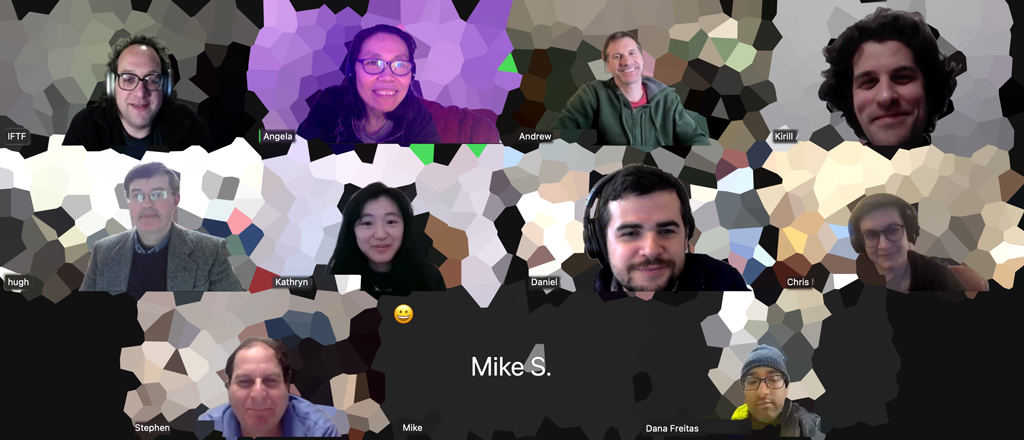
The People’s Republic of Interactive Fiction convened on Tues, Feb. 28th on Zoom. Zarf, anjchang, Stephen Eric Jablonski, Andrew Stephens, Dana Freitas , Mike Stage, Daniel Gaskelll, Hugh, and Kyrill attended. Warning: What follows is probably not proper English, but just my log of notes from the meeting to jog people’s memories.
Depression Quest – Dana told us the backstory and gave it a chance. The author was at FIG. It’s a story about depression.
Discussion about database-like games, wandering a memory.
Serial Experience Lain, the anime game. Game is very strange. Game released after the series. Memories and fading memories.
Then https://en.wikipedia.org/wiki/Serial_Experiments_Lain_(video_game)
Gadget game by the same author (https://en.wikipedia.org/wiki/Haruhiko_Shono) were the precursors to Myst. Experimental and weird.
HerStory, Mike S mentioned about a database. A digital love story. Immortality.
Analogue: a hate story arguably much more database like than digital
Dana asks what are the challenges of a database-type game.
One of the challenges is access, you usually only have only one piece to work with at a time
https://neurocracy.site/ is another database-style narrative game, modeled on editing wikipedia.
Making these games compelling is tricky. Sam Bardo uses video actors. 1986 Portal game was pretty linear. Portal’s story was not ideal to slog through.
Did Emily Short wrote a post about this type of game but either I’m fabricating the memory or can’t remember well enough the phrase she used to describe them
Immortality, and whether or not you need to encounter the memories in the right order is a concern. Is it coherent when pieces are encountered in random order.
Does it skew away from adventure toward world building? Is there an incentive to explore, if you’re walking around IF game…you have a list of things to get. In a game like HerStory, putting the pieces together requires a different motivation, as it is more open ended. Ideally you would still progress in a linear fashion. How to balance the linear progression and exploration?
Will readers do a breadth first search, clicking on every link?
Becketts plots where you arrive after something happens, or Apocalyptic plots where you don’t bother with NPCs.
What if memories and nodes are unstable? Video game version of unreliable narrator?
Is there an agenda for retelling a story based on manipulating the character’s perspective. Like Disco Elysium, restructuring memory from scratch?
https://ifdb.org/viewgame?id=p0gpa2mt0f6xvsj0
Anj has been watching Murdoch Mysteries the story of modern technologies retold. Hugh has been doing research into the 1890s Sherlock
Jeremy Haight a game where hippies go back in time and try to imitate the sounds of their era with existing musical instruments.
Can you be a punk with a flute before you’ve become a punk?
CS Lewis, using narration of space to open up what was there. We think about the world in such a limited space of our present day needs. For example Dan Mantions the maze puzzle in Photopia. Anagramming gun from Counterfeit Monkey. Baba Is You.
Kyrill playing Atomic Heart https://mundfish.com
Christ Played a bit of Roberta William’s Colossal Cave remake.Exploring the unconventional way of playing. Text pretty close to the original game.
Mention of linking an Ink story file to Javascript to add a UI. https://github.com/y-lohse/inkjs is the ink-in-javascript package
Mike Stage idea of educational review product
Kathryn has been playing Root a Game of Woodland Might and Night. Virtual game and board game. +1 Recommendation
Kathryn looking at more physical products. https://www.kickstarter.com/projects/causacreations/sefirot A Tarot-based game for 1-2 players, featuring lavish art and three modes of playing and divination to explore.
Daniel working on an intense project of parsers for limited systems. Showed a demo!